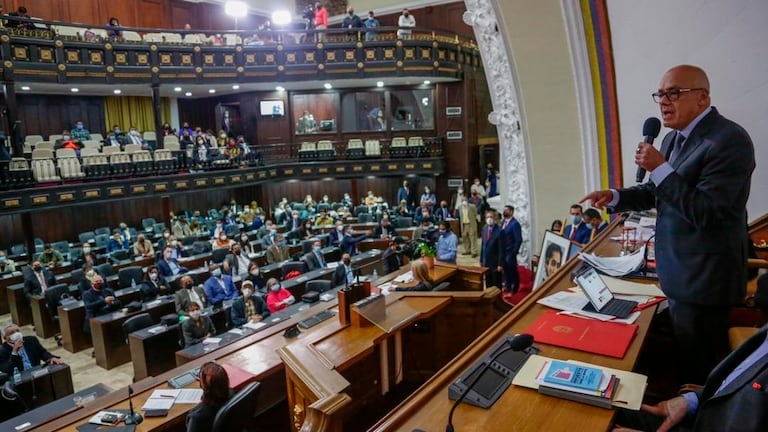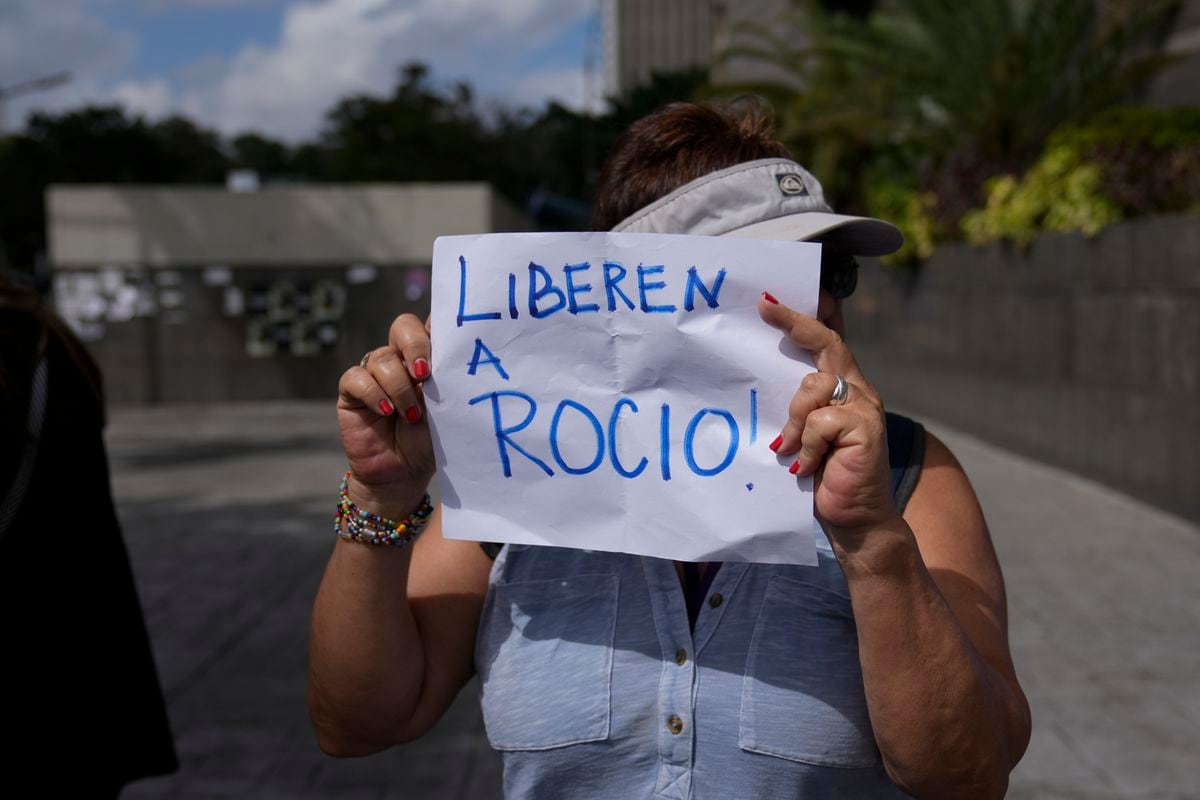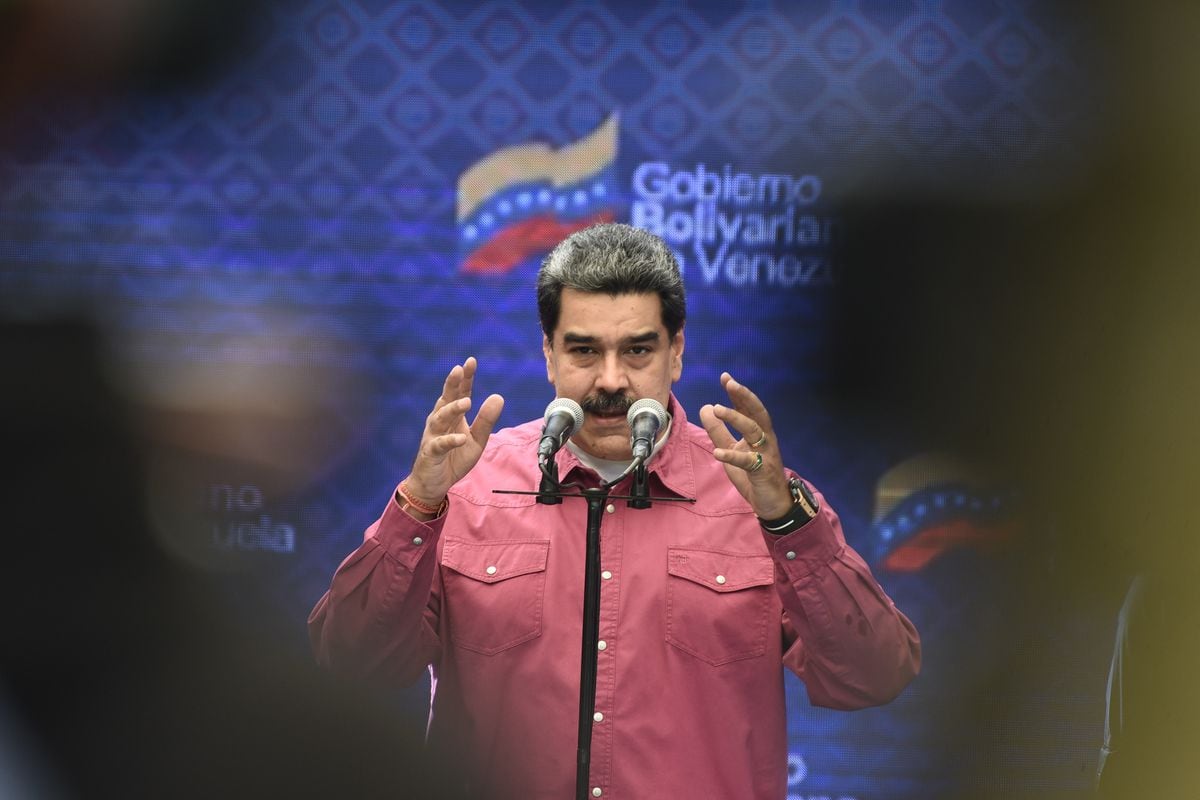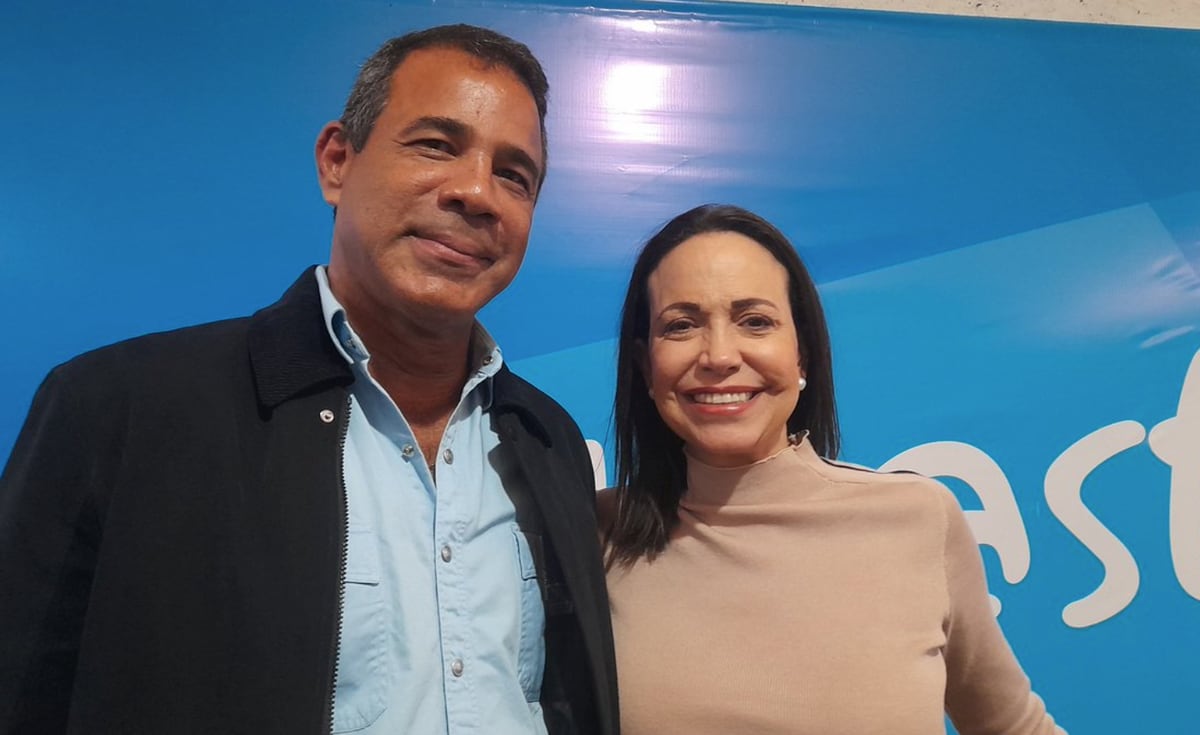The 'number two' of Chavismo, Diosdado Cabello, in a session of the Venezuelan Parliament.EFE
The National Assembly of Venezuela, elected on December 6 and controlled by Chavismo, presented its first package of measures this week.
Despite the fact that Parliament was chosen in elections without opposition participation, indicated as irregular and with a high abstention, the coalition of parties of the Government of Nicolás Maduro will use the legislative terrain to consolidate its power.
The first step will be to establish a control of the social networks and the work of the NGOs that operate in the country.
The range of topics of the 33 proposals presented has already received the approval of Maduro.
Commercial and territorial laws and laws on the organization and citizen participation based on communes will be reformed.
The late President Hugo Chávez has already tried a similar organizational model with the failed constitutional reform of 2007. If he succeeds, it will be the first step to suppress the current power structure, based on governorships and mayors.
One of the regulations that has aroused the most concern is the reform of Social Responsibility in Radio Television, Networks and Electronic Media, which proposes a regulation of social networks that may lead to a deepening of censorship.
“Here we will add a special chapter for social networks and the social responsibility of social networks in Venezuelan territory.
Everyone hang and fly, ”Maduro said this week.
Last November, in the context of the campaign for women parliamentarians, the Venezuelan president had already called for the regulation of these platforms.
“What limits do those networks that we already know meet?
None.
It is an issue for the next National Assembly, ”he said then.
Digital locks
The Venezuelan government has applied selective blocks of critical informational digital portals, according to data from organizations such as the Institute of Press and Society and Public Space.
He has also imprisoned tweeters, taking refuge in the Law against Hate, sanctioned in 2017 by the National Constituent Assembly, the parallel Parliament that Maduro created to face the opposition majority in the Legislative.
The list of laws presented this week also includes the Cyberspace Law, an instrument designed to regulate the internet.
The so-called International Cooperation Law, which may regulate the financing of NGOs, also arouses suspicions in the opposition.
Deputy Diosdado Cabello, considered the
number two
of Chavismo, has charged against humanitarian organizations on several occasions, in particular those that have denounced the situation in the country.
The documentation made by these organizations has added to the series of reports and opinions issued by the United Nations and the International Criminal Court on human rights violations and crimes against humanity committed in Venezuela.
The Assembly, in which the governing party has 257 out of 277 seats, repealed this Law for the Regularization of Constitutional Periods, thus facilitating the next National Electoral Council to hold regional and municipal elections at the same time.
The strategy is for the new map to strengthen the political hegemony of Chavismo.
Maduro has used these processes to finish fragmenting the opposition around the dilemma of participating without guarantees or abstaining as a way to boycott the elections.
While the Assembly was controlled by the opposition, between 2015 and 2020, Maduro blocked its operation through the Supreme Court, with the creation of the Constituent Assembly and the direct persecution of the deputies.
Now, once again with a Parliament to suit him, the Chavista offensive to stay in power in the most adverse scenario - with almost total rejection of the citizens and financially and diplomatically surrounded by sanctions - opens a front in the legislative field.
Subscribe here to the
EL PAÍS América
newsletter
and receive all the informative keys of the current situation in the region.


/cloudfront-eu-central-1.images.arcpublishing.com/prisa/F4LSK2ELHJHY3O7CGPILY5EUMA.jpg)



/cloudfront-eu-central-1.images.arcpublishing.com/prisa/LAO4YH4MT6P5ML3EI33T7KEJIE.jpg)
/cloudfront-eu-central-1.images.arcpublishing.com/prisa/GQ7AFCK2OMNDZLULOZ7T5JPACM.jpg)
/cloudfront-eu-central-1.images.arcpublishing.com/prisa/MAVSIP6MF252ZKL4ZEZAPMSUPQ.jpg)
